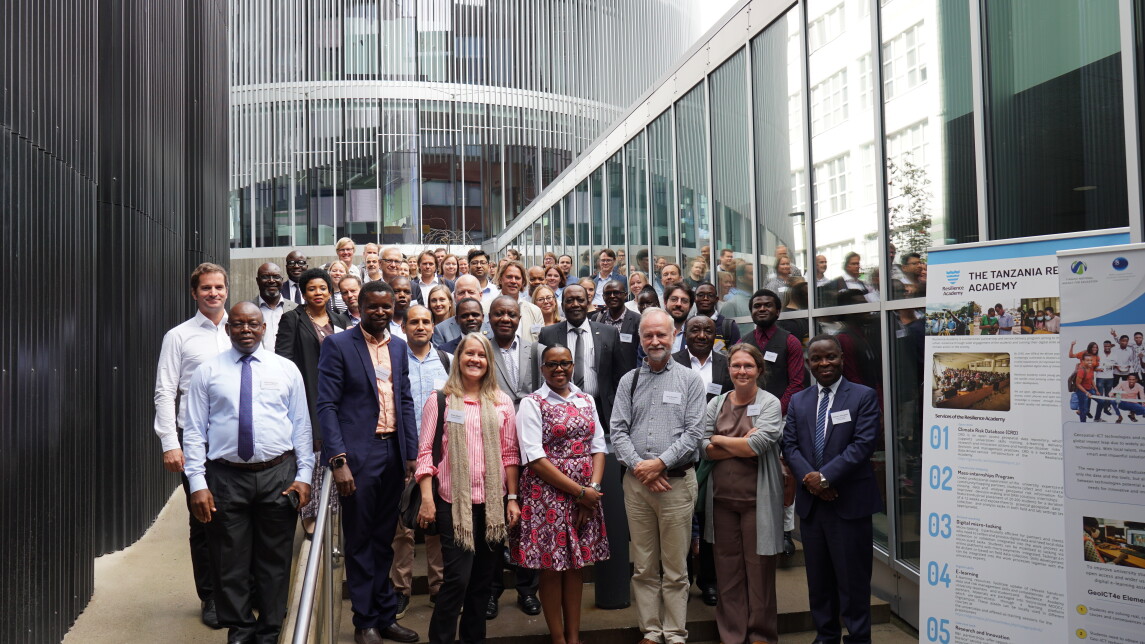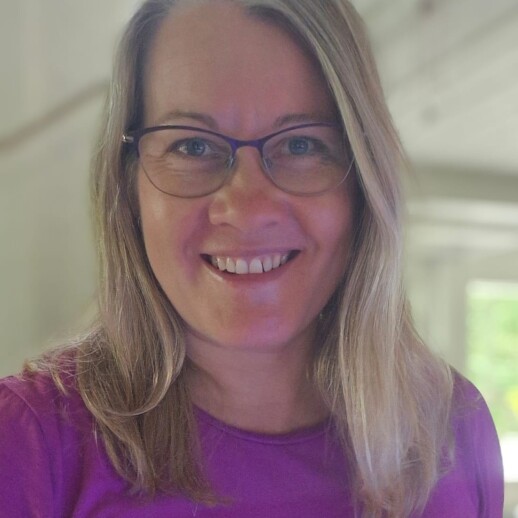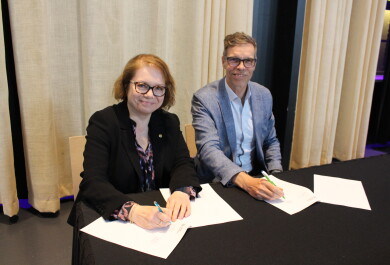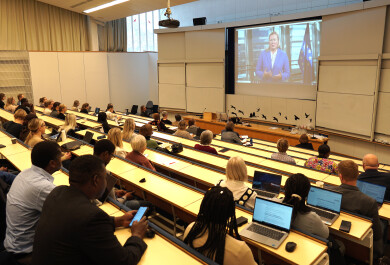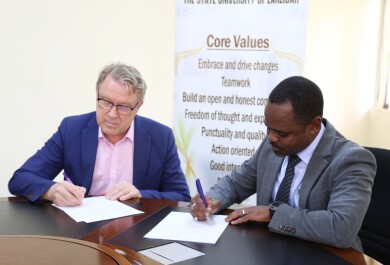University of Turku deepens its partnerships with Tanzanian universities to accelerate digitalization and to manage the risks of climate change. Members from five Tanzanian universities, the Tanzanian government and the World Bank visited the University of Turku in the first week of September. The aim of the visit was to deepen the long-lasting institutional partnership between the universities, especially through the joint World Bank -funded Resilience Academy collaboration. A Memorandum of Understanding was signed on Thursday September 1st.
The programme of the visiting week was kicked off on Monday August 29th in a seminar “Geospatial data, digital technologies and new partnerships for social innovations in the Global South”
– The University of Turku is aiming to become even more international and to enhance our global responsibility in creating a prosperous and sustainable future. This activity and long-lasting cooperation in Tanzania, between our universities, the Tanzanian government and the World Bank, is important and impactful. We are looking forward to deepening our cooperation with the Tanzanian universities and government even further and launching new and innovative partnerships for the future, rector Jukka Kola said in his welcoming speech.
The seminar showcased several projects by the World Bank, European Space Agency and Ministry for Foreign Affairs of Finland, including Tanzania Resilience Academy and the GeoICT4e.
How digitalization can help manage the climate change risks?
The projects presented in the seminar share a common goal in managing different types of risk, caused by the climate change, through skills and capacities of young generation university graduates.
Each emphasized the importance of collecting and sharing relevant geospatial data, developing high-quality but affordable technologies, and discovering innovative and impactful digital data, Earth observation and technology solutions for the Global South.
Transforming today’s students’ competences to tackle with the climate change requires digital skills and co-creative methods, so that university graduates will have the best possible capacities to solve various problems that the climate change will cause in the future.
Edward Anderson, Senior Disaster Risk Management Specialist at the World Bank, talked about the Digital Earth Partnership. This new World Bank partnership program aims to accelerate digitalization for sustainable development and enhance the resilience of vulnerable countries to climate change.
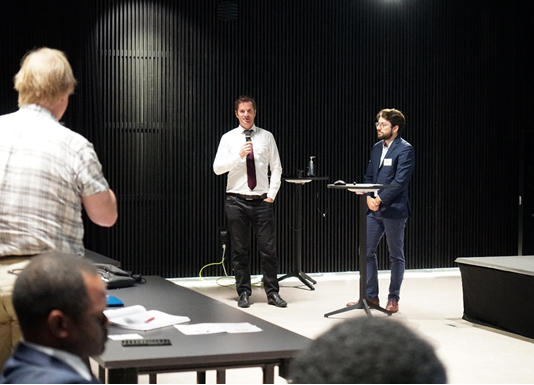
One of Anderson's examples highlighted a Tanzania Urban Resilience Project focusing on the prevention of urban flooding in Dar es Salaam. The project collects and assesses risk data using Resilience Academy students from local universities and uses several types of modelling to understand how flooding affects the rapidly changing urban infrastructure and the city residents. The project develops the planning and coordination of risk reduction, to prevent the flooding, to reduce the damages and to help those who are affected by the recurring floods.
– To build sustainable cities and resilient infrastructure in fast growing urban areas, where climate change also causes severe risks, we need to apply innovative methods. We must acquire relevant and accurate data, we need high-quality technology and digital solutions but it must be low-cost and accessible. We need to engage the local actors, and they need to have relevant digital skills. Collaboration with the universities plays an important role, Anderson said.
Alex Chunet, European Space Agency (ESA) Representative to the World Bank, talked about the Global Development Assistance -partnership, a new program of the ESA to match with the Digital Earth Partnership program of the World Bank. He shared how ESA together with its partners use Earth observation in different development operations and how they aim to achieve climate resilience development through the mainstreaming of satellite data and services.
– Why do we want to promote mainstreaming of the Space Agency’s technologies? We believe there is major potential to increase the impact of our data by providing access to our Earth observation data to different development projects. ESA can ensure the supply of the data, but our partners in different local projects can ensure the adoption and turning it into mainstream action, Chunet said.
Next Atishay Abbhi, disaster risk management specialist at The World Bank and the Tanzania Resilience Academy team members Mr Msilikale Msilanga, Dr Abubakar Bakari and Dr Zakaria Ngereja, presented their digital services for development of climate resilience in Tanzania.
– We are at the starting point in action against climate change and in the risk management. Development and decision-making demand data, innovation and digital skills. Resilience academy is building digital services ecosystem to supply high-quality and locally verified data for decision makers and to educate expert workforce for the future needs, Abbhi said.
In the final presentation, professor Niina Käyhkö, Dr. Mercy Mbise, Dr Ernest Mauya and Dr George Matto presented the ongoing students’ 8 weeks long multicompetence learning process developed and piloted by the GeoICT4e-project in five Tanzanian universities with 120 students.
– Our project aims to transform geospatial and ICT education and we have created a new socially innovative model. Through our learning model, the students will be able to identify and understand the root causes of different problems, which is essential before you can come up with an effective solution. Working with real cases and problems in close collaboration with the problem owners, students will obtain practical skills in collecting and using geospatial data and ICT technologies. Student’s will also gain confidence in their skills to innovate and come up with solutions. They will also acquire climate, sustainability and resilience skills, which are becoming ever more important in the future, pointed professor Käyhkö.
University of Turku partners with Tanzanian Resilience Academy
The week-long visit was finished by a discussion with the University of Turku rectors on Thursday September 1st and by signing the Tanzania Resilience Academy Memorandum of Understanding (MoU) between four Tanzanian universities, University of Turku and the Commission of ICT of Tanzania.
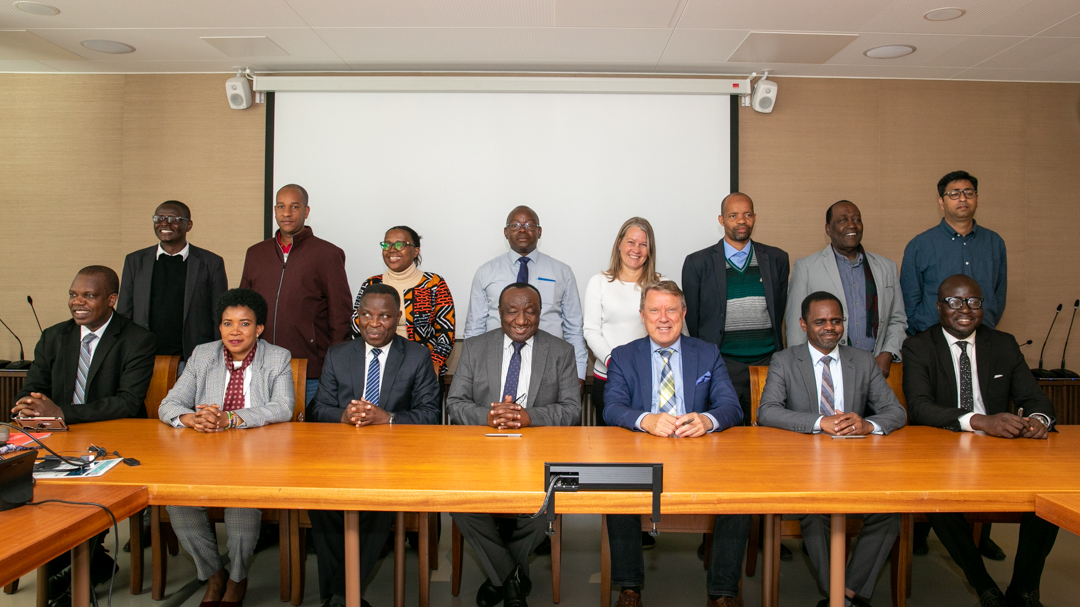
The MoU establishes general framework and structures for the cooperation and for the implementation of this cooperation in the areas of universities’ skills and competence development, education and e-learning, student internship and industrial placement, research and innovations, staff and student mobility, and digital data and technology -related partnerships and services.
Tanzania Resilience Academy is a digital skills development and service provision model of the universities to deliver climate action. It aims at strengthening digital competences of the universities in education, research and service provisioning related to geospatial data, climate risk information management, and resilient future development. Tanzania Resilience Academy has represented a commitment and partnership of the universities and the World Bank to improve skills and knowledge base of the African youth for inclusive, safe and resilient urban development.
